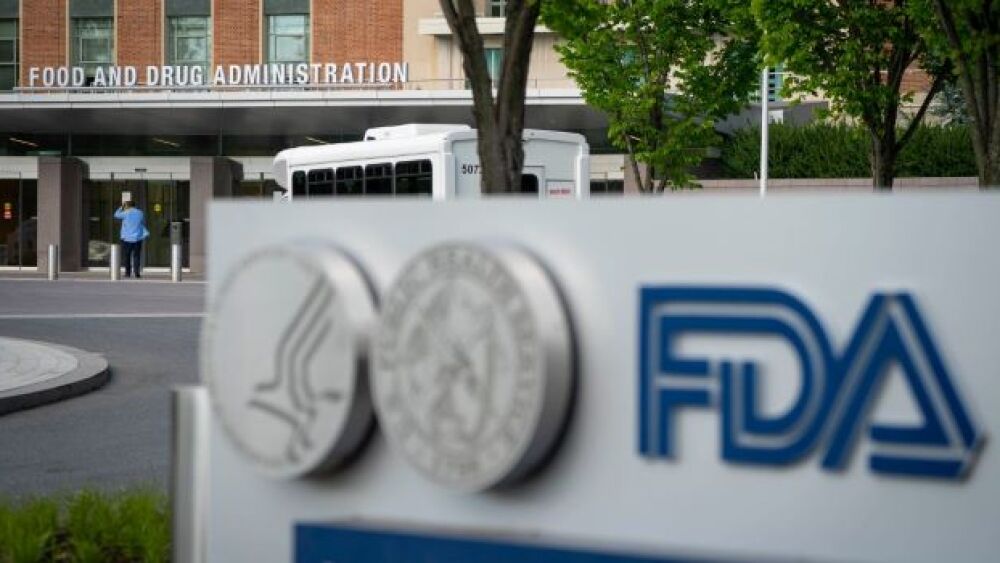On Friday, the FDA approved Apellis Pharmaceuticals’ Syfovre (pegcetacoplan) as the first treatment for geographic atrophy (GA), a leading cause of blindness.
Sarah Silbiger/Getty Images
On Friday, the FDA approved Apellis Pharmaceuticals’ Syfovre (pegcetacoplan) as the first treatment for geographic atrophy (GA), a leading cause of blindness.
GA causes areas of the retinal cells to waste away and die in some patients with age-related macular degeneration. The condition affects over five million worldwide and, until now, progressed relentlessly without any treatments to slow the decline in patient’s vision.
On average, the lesions caused by the condition begin impacting central vision within 2.5 years.
Eleonora Lad, lead investigator of the Phase III OAKS and DERBY trials that formed the basis for the treatment’s approval, called the FDA decision “the most important event in retinal ophthalmology in more than a decade.”
Syfovre is not a cure for GA but an ongoing treatment that is dosed flexibly, every 25 to 60 days, and increases in effect over treatment time. The DERBY clinical study showed up to a 36% reduction of lesion growth between months 18-24.
The injection should be on the market by the beginning of March, and it isn’t cheap. The company told Reuters it will be priced at $2,190 per vial before discounts.
This is the second approval for the drug. The FDA first approved pegcetacoplan in paroxysmal nocturnal hemoglobinuria, a rare blood disorder where the immune system attacks red blood cells and platelets. It is marketed as Empaveli in that indication.
Pegcetacoplan works by inhibiting C3 to regulate downstream immune response in the complement system. Dysregulated activation of this system can cause both inflammation and damage to motor neurons.
The drug is also in development for ALS, rare kidney diseases, coronary artery disease, Wet AMD and a common complication of stem cell transplantation.
Aside from this FDA decision, competition in the GA market has been heating up.
Last week, Iveric Bio announced the FDA accepted its NDA and granted it priority review for a C5 inhibitor for the treatment of GA. Iveric’s candidate showed efficacy rates of up to 35% in 12-months across two Phase III trials.
In late 2021, Novartis paid $1.5 billion for UK-based Gyroscope Therapeutics in late 2021 to acquire its GA gene therapy. It may be a long road ahead for this candidate, as the company’s 2022 annual pipeline report lists it as still in Phase II and put the “first planned submissions” for the drug at 2026 or later.






